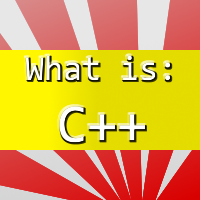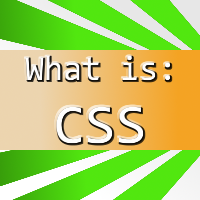This brief post is intended to those of you who, for one reason or another, are currently working in a Web-related role. Whether you are a SEO consultant, SEM professional, Community Manager, UI Designer, or someone who works on the Internet for a living, this post is for you. Stay curious!
Have you ever heard about MEAN and LAMP? I'm sure you have. Both are web development stacks that allow software programmers to build powerful apps. They are standards in the web development industry, so, chances are that you have to deal with MEAN or LAMP developers at work.
But which one is better? And what are the main differences between them? Let's address these questions right away.







 Why Human Species Will Go Extinct Soonon 09/13/2016
Why Human Species Will Go Extinct Soonon 09/13/2016


Comments
The LAMP Stack Pros subheading describes PHP as, along with Perl and Python, "based on the same Object Oriented principles as Java, C++, Swift and many other modern OOP programming languages."
Would it not seem logical that Perl, PHP and Python should be sharing a three-way split -- because of their commonality in their quality Object-Oriented principles base -- of websites run worldwide instead of PHP running just short of two-thirds?
The LAMP Stack Pros subheading describes PHP as, along with Perl and Python, "based on the same Object Oriented principles as Java, C++, Swift and many other modern OOP programming languages."
So why would Perl and Python not be claiming a bigger share (than whatever they have of the 20 percent not running PHP) of websites worldwide?
The computer crashed before I could ask the other part of my question about LAMP Stack Pros the other day.
The LAMP Stack Pros subheading indicates that "PHP is the most widely used web programming language. It is estimated that about 80 percent of all websites worldwide are running PHP."
What would the other 20 percent not running PHP be running?
Your paragraph on Pros under LAMP Stack indicates that "WordPress, a free software CMS entirely written in PHP, powers about 25% of the Web."
What powers the other 75%?
LAMP and MEAN each have attractive, compelling advantages. And yet they each hold onto some inconvenient, significant disadvantages, such as LAMP's discomfort over real-time data and speedier speeds and MEAN's breakdowns and speediness.
Is it possible that a third web development stack will emerge to nudge "new kid on the block" appeal and status away from MEAN?
You describe a LAMP advantage as including PHP, "the most widely used web programming language. It is estimated that about 80 percent of all websites worldwide are running PHP — WordPress, a free software CMS entirely written in PHP, powers about 25% of the Web."
Why would it be that, with the above-mentioned statistics, LAMP has not overcome the restrictions -- such as non-efficient real-time data-handling approaches, non-speed and non-trendiness -- that it has?
You describe as MEAN disadvantages that "it is not uncommon to find that a particular Node.js library won't work 100 percent as expected. Things tend to break easily on a MEAN environment than on LAMP."
How expensive, how onerous, how time-consuming is the fixer-upper? How much for how long is the guarantee for the fixer-uppering?
Revisiting your wizzley called to mind what I'd meant to stop back about after the first reading and my first shared reactions below.
How easy is it to transition from LAMP to MEAN or vice versa?
GeorgeBass, Thank you for the clear listing of advantages and disadvantages to LAMP and MEAN. Will MEAN developers always suffer from JavaScript fatigue, or is it possible that hanging in there long enough will give sufficient catch-up time? Will real-time applications, speed and trendiness return to LAMP?